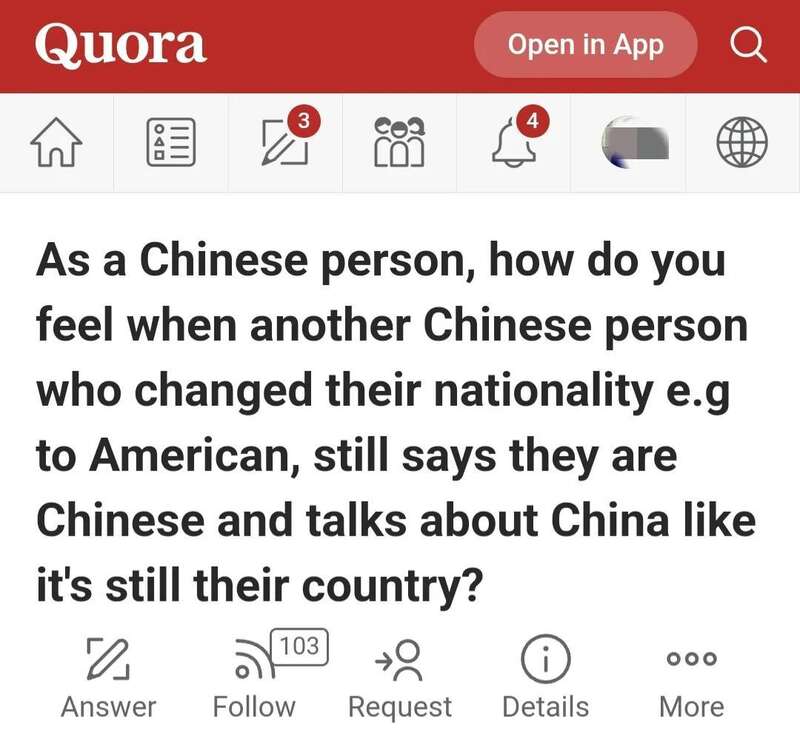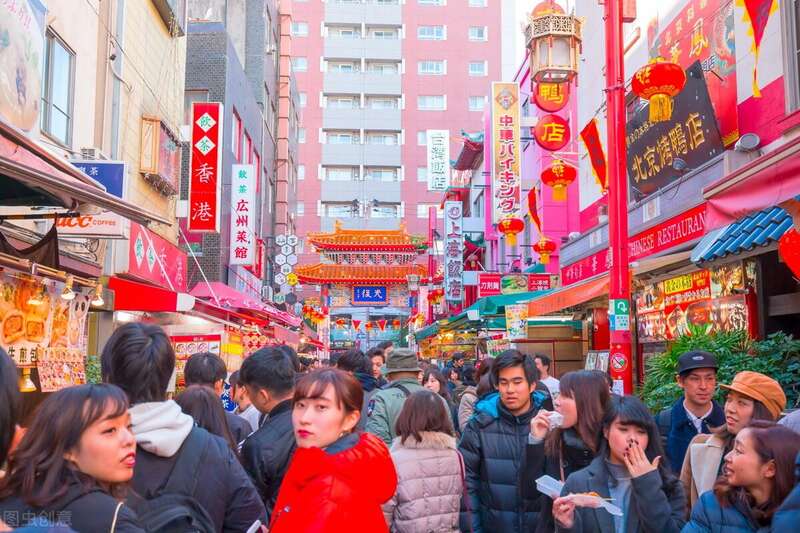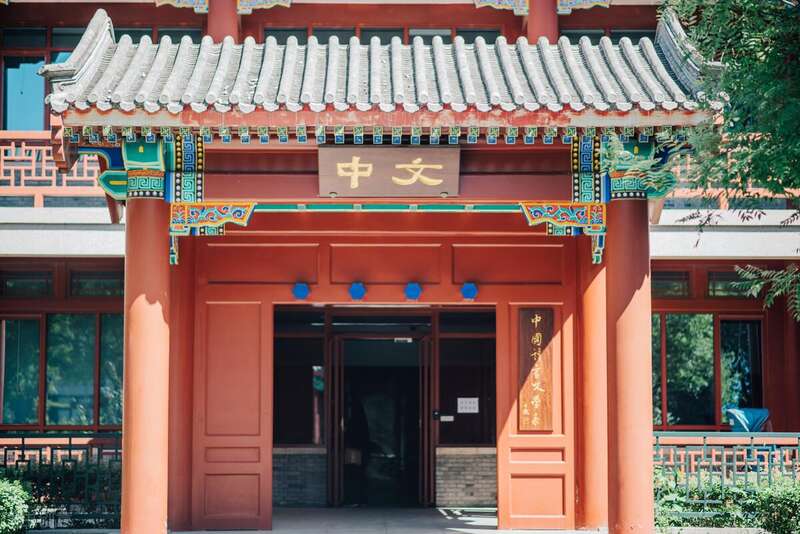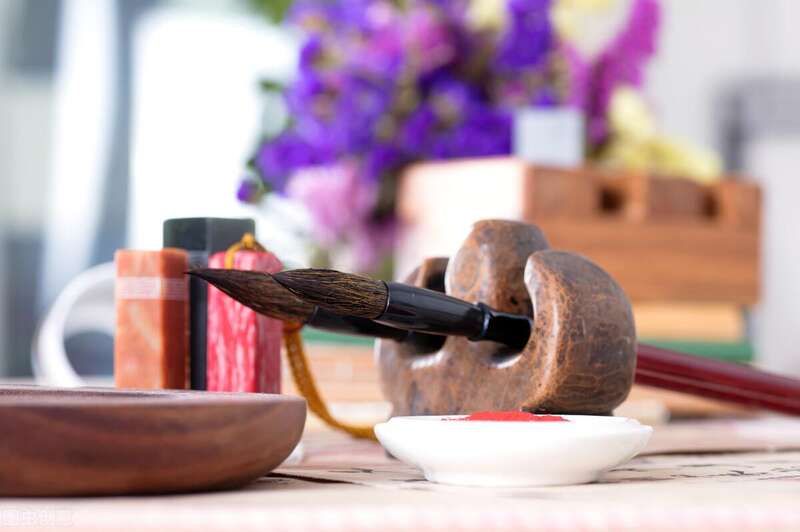
问题

华裔网友Tony Gao的回答
I don't think it's a problem.
我觉得这不是问题。
I changed my nationality because I always travel around and other factors, but mainly for convenience. How do I view my current situation:
我改变国籍是因为我总是四处旅行和其他因素,但主要是为了方便。我如何看待我的现状:
1. I am still a Chinese, which is my identity and my heritage. My passport or anything else doesn't define who I am.
1.我仍然是中国人,这是我的身份和我的遗产。我的护照或其他任何东西都不能定义我是谁。
2. I am not a Chinese citizen. I have no "political rights" in China, but I am still very interested in everything in China.
2.我不是中国公民,我在中国没有“政治权利”,但我仍然对中国的一切非常感兴趣。
3. I defended China when necessary, mainly because people quoted incorrect sources and did not understand the history of (China and their own country).
3.我在必要时为中国辩护,主要是因为人们在讨论她时引用了不正确的资料来源,完全不了解(中国和他们自己国家)的历史。
4. Because I live in many places, I do not feel rooted in any country. Even though I left China when I was very young, as I grew older, I felt that I missed everything about China more.
4.由于我生活在许多地方,我并不觉得自己扎根于任何国家。即使我很小的时候就离开了中国,但随着年龄的增长,我倒觉得自己更想念关于中国的一切了。

马来西亚网友Joyce Bean的回答
I am a fifth generation Malaysian Chinese descendant. I can speak Chinese and read Chinese newspapers regularly.
我是第五代马来西亚华人后裔,我会说中文,也会定期阅读中文报纸。
I know Chinese people (!!!) from Beijing, Shanghai, Guangzhou, Perth, Sydney, London, Dhaka, Bangkok and Arkansas, There are also friends from Singapore, Taipei and other cities.
我认识来自北京、上海、广州、珀斯、悉尼、伦敦、达卡、曼谷、阿肯色州的中国人(!!!),也有来自新加坡和台北等城市的中国朋友。

唐人街
I really feel that we have a bit of brotherhood. We speak Mandarin, Minnan or Cantonese together. Many of us think Stephen Chow is the king of comedy. Jacky Cheung should stick to singing instead of dancing. We are really pleased with the spread of Chinese culture. We prefer noodles and rice to pizza and hamburgers.
我确实觉得我们之间都有点血肉同胞的情谊。我们在一起讲普通话、闽南语或广东话。我们很多人认为周星驰是喜剧之王,张学友应该坚持唱歌而不是跳舞。我们确实对中国文化的传播感到欣喜,我们喜欢面条和米饭胜过披萨和汉堡。
Due to the number of overseas Chinese in the world and the strength of Chinese media, Chinese culture continues to spread around the world. Most of the major cities I have visited have Chinese newspapers. This is different from the fact that most African Americans who have lived in Namibia for generations have cut off their ties with the African continent.
由于世界华人华侨的数量和中国媒体领域的实力,中国文化继续在世界各地传播。我访问过的大多数主要城市都有中文报纸。这与世代居住在纳的非裔美国人大多切断与非洲大陆的联系不同。
So, yes, I can be a Singaporean or an American, where I am assimilated in public and treated equally. But in terms of culture, I am a Chinese, and I also want to "return" to my motherland (祖國). I hope this will help you give answers to your questions.
所以,是的,我可以是新加坡人或美国人,在那里,我在公共场合被同化,被平等对待,但在文化方面,我是中国人,我也想“回到”祖國 (祖传土地)上转转。希望这有助于你对你的问题给出答案。

华裔网友Coby Ma的回答
I think your question points out the difference between nation-state based identity and culture based identity. The concept of "Chinese" is different from that of Americans.
我认为你的问题指出了基于民族国家的身份和基于文化的身份之间的区别。“中国人”的概念与美国人的概念不同。
The nation-state status means that if your British parents emigrate to Australia, you may identify yourself as an Australian rather than a British.
基于民族国家的身份意味着,如果你的英国父母移民到澳大利亚,你可能会将自己识别为澳大利亚人而不是英国人。
But "Chinese" refers to a broader concept of "Chinese" culture, not just Taiwan, Hong Kong or the mainland. In this sense, it is a bit like "Jews". One is based on culture, and the other is based on religion. Both have nothing to do with the country you choose to live in. Many of my friends still think they are Chinese. Although they can't speak/read/write Chinese, the last person in their family who lived in China is their great grandparents.
但“中国人”指的是更广泛的“中国”文化概念,而不仅仅是台湾、香港或大陆。从这个意义上讲,这有点像“犹太人”。一个基于文化,另一个基于宗教。两者都与你选择居住的国家无关。我的许多朋友仍然认为自己是中国人,尽管他们不会说/读/写中文,他们家里最后一个在中国生活过的人还是他们的曾祖父母。
I usually think it's better not to judge people's identities easily. As far as the law is concerned, it's not that simple.
我通常认为最好不要轻易判断人们的身份,就法律而言,这并不是那么简单。
Citizenship laws can also be complex. For example, my wife is a naturalized American citizen, but she holds a passport for Taiwan. As a Taiwan resident with a Taiwan compatriot pass, the People's Republic of China considers her a Chinese citizen.
公民法也可能很复杂。例如,我的妻子是入籍的美国公民,但持有台湾地区的护照,作为持有台湾同胞通行证的台湾地区居民,中国当然会认为她是中国公民。
I am a Chinese born in the United States, but since my parents were not permanent residents of the United States at the time of my birth, I have Chinese nationality according to the 1982 law. Once I obtain Hong Kong permanent resident status, I should be eligible to obtain a Hong Kong passport. This also applies to my children born in the United States.
我是在美国出生的中国人,但由于我的父母在我出生时不是美国永久居民,根据1982年的法律,我拥有中国国籍,一旦我获得香港永久居民身份,我应该有资格获得香港护照。这也适用于我在美国出生的孩子。
Hong Kong has special regulations. Basically, many Hong Kong residents to hold foreign passports. Even if you have been naturalized as a foreign citizen, China does not consider that you have given up your Chinese citizenship unless you explicitly state that you have given up your Chinese citizenship.
香港有特别规定。基本上,许多香港居民持有外国护照。即使您已归化为外国公民,除非您明确声明您已放弃中国公民身份,否则中国不认为您已放弃了中国公民身份。
Another thing is that we are in a globalized world. I think it would be very strange for my grandchildren to have only one nationality. I think it would be better if my grandchildren had five or six nationalities.
另一件事是,我们身处一个全球化的世界。我想,在我的孙辈们的时候,如果有人只有一个国籍,这会被认为是非常奇怪的,我认为如果我的孙儿们有五个或六个国籍就好了。

华裔网友Sam Arora的回答
I am 34 years old this year. I have lived more in the United States (18 years) than in China (16 years).
我今年34岁了,我在美国(18年)的生活时间比在中国(16年)的多。
As a veteran of the Army Iraq War and a boy who only knew "Hello", I finally became a federal investigator. I worked hard and played hard, paid sweat and blood for this country, and realized my American dream. Oh, yes, I am a very proud American.
作为一名陆军伊拉克战争退伍军人和一名只知道“你好”的男孩,我最终成为了一名联邦调查员,我努力工作,努力玩耍,为这个国家付出了汗水和鲜血,实现了我的美国梦。哦,是的,我是一个非常自豪的美国人。
On the other hand, I do maintain a strong connection with my tradition and culture. Being an American does not mean "acting like a white man". I have a bachelor's degree in Chinese literature. Master of Chinese Linguistics. Am I cheating? If a liar can get on the stage of the Harvard East Asia Research Conference, it will be too easy to cheat, because there are more than 4 million Chinese Americans in the United States.
另一方面,我确实与我的传统和文化保持着牢固的联系。作为一个美国人并不等于“表现得像白人”。我获得了中文文学学士学位。中国语言学硕士。我在作弊吗?如果一个骗子能登上哈佛东亚研究会议的舞台,那么作弊就太容易了,因为美国有400多万华裔美国人。

While enjoying freedom and carrying 5000 years of history and culture, I can better see the advantages and disadvantages of China and the United States. This proper identity will only make me stronger and better. I am very happy to be not only a Chinese, or an American, but also a Chinese American.
在享受自由和承载5000年历史文化的同时,我可以更好地看到中国和美国的优势和劣势。这种应有的身份只会让我变得更强更好。我很高兴不仅是一个中国人,或者是一个美国人,而且是一个美籍华人。
By the way, when I served in the military, many people asked, "If there was a war between China and the United States, which side would you choose?" The answer is simple. Emotionally, I never want these two great countries involved in war. However, if the time is right, the flag on my uniform already shows the answer. Just like Japanese Americans in World War II. Japanese Americans formed the 442nd Force, which is the most decorative force in American military history.
顺便说一句,当我在军队服役时,很多人问“如果中美之间发生战争,你会选择哪一方?”答案很简单。在感情上,我永远不希望这两个伟大的国家卷入战争。然而,如果时机成熟,我制服上的旗帜已经说明了答案。就像二战中的日裔美国人一样。日裔美国人组成了第442部队,这是美国军事史上最具装饰性的部队。

中国网友艾瑞克•林的回答
As a Chinese born and raised in China, I think they have the right to decide who they are. This is my principle of free will. Let me explain a few points further.
作为一个在中国出生和长大的中国人,我觉得他们有权决定自己是谁,这是我的自由意志原则。让我进一步解释几点。
1. Nationality and identity
1.国籍与身份
Let's see how to define nationality.
让我们看看如何定义国籍。
Nationality is the legal relationship between a person and a country. Nationality gives the State jurisdiction over the person and gives the person State protection. These rights and obligations vary from state to state.
国籍是一个人和一个国家之间的法律关系。国籍赋予国家对该人的管辖权,并给予该人国家的保护。这些权利和义务因州而异。
Therefore, anyone holding a passport of the People's Republic of China is legally Chinese. If they hold passports different from those of other countries, they are not Chinese. The Chinese government does not recognize dual nationality.
因此,任何持有中华人民共和国护照的人在法律上都是中国人。如果他们持有不同于其他国家的护照,他们就不是中国人。中国政府不承认双重国籍。

However, the word "Chinese" also refers to a national group.
It is impossible to describe or define a race with a single characteristic. Race is basically composed of language, religion, descent and customs. Members of the same nationality will maintain their national characteristics through language, festivals, food, etc. These national characteristics are inherited from their ancestors and help them form their own identity.
用单一特征来描述或定义一个种族是不可能的。种族基本上由语言、宗教、血统和习俗组成。同一民族的成员将通过语言、节日、食物等保持其民族特征。这些民族特征继承自祖先,帮助他们形成自己的身份。
Therefore, a person born and raised in the Chinese community, no matter where he lives, is likely to consider himself a Chinese in the national sense. After this identity positioning, he will learn and share the cultural characteristics of his ancestors and pass them on to his children.
因此,一个在华裔群体中出生和长大的人,无论居住在何处,都很可能认为自己是民族意义上的中国人。在这一身份定位之后,他将学习和分享祖先的文化特质,并将其传递给子女。
2. Nationality and culture
2.国籍与文化
A man has been legal immigrants to the United States for ten years, but has never spoken English. In terms of nationality, he is a citizen of the United States of America, but not a real American. Why? Because this person does not belong to the American cultural area.
一名男子合法移民美国已有十年,但从未讲过英语。在国籍方面,他是美利坚合众国公民,但不是真正的美国人。为什么?因为这个人不属于美国文化区。
Culture is learned, not inherited. If an American parent adopts an orphan from China and raises the child in the United States, but does not teach the child any knowledge about China, the child will not consider himself Chinese when he grows up.
文化是通过学习获得的,而不是通过基因遗传。如果一对美国父母收养了一名来自中国的孤儿,并在美国抚养这个孩子,但却不教这个孩子任何关于中国的知识,那么这个孩子长大后不会认为自己是中国人。
Cultural characteristics, such as the language we speak, the food we eat and the festivals we celebrate, are the basic components of culture. Some related cultural features will form a specific cultural complex. Different cultural complex will lead us to different cultural systems, cultural regions and cultural fields.
文化特征,如我们所说的语言、我们吃的食物和我们庆祝的节日,是文化的基本组成部分。某些相关的文化特征将形成特定的文化复合体。不同的文化情结将引导我们走向不同的文化体系、文化区域和文化领域。

People don't just define themselves by where they live. A woman calls herself a New Yorker, not just because she lives in New York. She must have a certain way of life or other cultural characteristics like other New Yorkers. Otherwise, even if she can afford the best house in New York, she is not a New Yorker.
人们不只是根据自己的生活地点来定义自己。一个女人自称纽约人,不仅仅因为她住在纽约。她必须像其他纽约人一样有某种生活方式或其他文化特征。否则,即使她能买得起纽约最好的房子,她也不是纽约人。
1. "Chinese" is a great concept. It is not limited to seven letters. Don't stigmatize it.
1.“中国人”是一个伟大的概念,他并不局限于7个字母,不要再污名化它了。
2. It is unwise to judge a person according to the place of birth or the place of parents' birth.
2.根据出生地或父母出生地来判断一个人是非常不明智的。
3. People can legally change their nationality without any blame or judgment. This has nothing to do with betrayal.
3.人们可以合法地改变国籍,不受任何指责或评判。这与背叛无关。
4. People define their identity not only according to where they live, but also according to what culture they belong to.
4.人们不只是根据他们生活的地方来定义他们的身份,而是根据他们属于什么文化。
5. It is natural and universal for people to be proud of their own culture.
5.人们为自己的文化感到自豪,这是自然和普遍的。

中国网友韦世嘉的回答
Like other people who released the answers, I felt the hostility between the lines in the question. The premise seems to be that if someone changes their citizenship, they should lose any right to identify with or comment on their former home country.
像其他发布答案的人一样,我感觉到了问题中字里行间的敌意。前提似乎是,如果有人改变了公民身份,他们就应该失去任何认同或评论其前母国的权利。
My question is, have you ever moved from one block to another? If you have, what if one day your old neighbor comes to you and accuses you of betraying your neighbor? How will you feel? Every time you want to say something about the old block, someone always asks, haven't you moved away? How can I talk about things here?
我的问题是,你曾经从一个街区搬到另一个街区吗?如果你有,如果有一天你的老邻居来找你,指责你背叛了你的邻居呢?你会有什么感觉?每次你想说关于老街区的事,总会有人问,你不是都搬走了?怎么有资格谈论这里的事?
Stupid question, isn't it!? This is how they feel when they see this problem.
愚蠢的问题,不是吗!?这就是他们看到这个问题时的感受。
If this is not strange enough, think about if you just bought a new house in another block, but did not sell the old house. You do this because you have money to invest, or you want your son to go to a better school, or live closer to work, or for any personal reason. You didn't even move out your old furniture. You left some plants there. Your family photo is still on the same wall. All your childhood memories are in the old house. You even go back to your old place to water your plants every once in a while, or say hello to your old neighbor.
如果这还不够奇怪,想想如果你只是在另一个街区买了一套新房子,而没有卖掉旧房子。你这样做是因为你有钱投资,或者你想让你的儿子上更好的学校,或者住在离工作更近的地方,或者任何个人原因。你甚至没有搬出你的旧家具。你把一些植物留在那里了。你的家庭照片仍然挂在同一面墙上。你所有的童年记忆都在老房子里。你甚至每隔一段时间就会回到老地方给你的植物浇水,或者向你的老邻居问好。
The only person who has a problem with you is your morally superior neighbor. He thinks you have changed your address, so you have no right to return to your original residence.
唯一对你有意见的人是你的道德优越的邻居,他认为你改变了地址,因此你没有权利回到你原有的住处。
Go back to your house- Your neighbor yells at you as if you were the enemy.
回你家去!-你的邻居对你大喊大叫,好像你是敌人。
"But this is my home!" You might say so, right? Now, do you understand what I mean? People will move, and we all have feelings for our hometown.
“但这是我的家!”你可能会这么说,对吧?现在,明白我的意思了吗?人们都会搬家,我们都对自己的老家怀有感情。
Don't be that stupid nonsense hostile neighbor.
别做那个愚蠢的胡说八道的敌对邻居。

